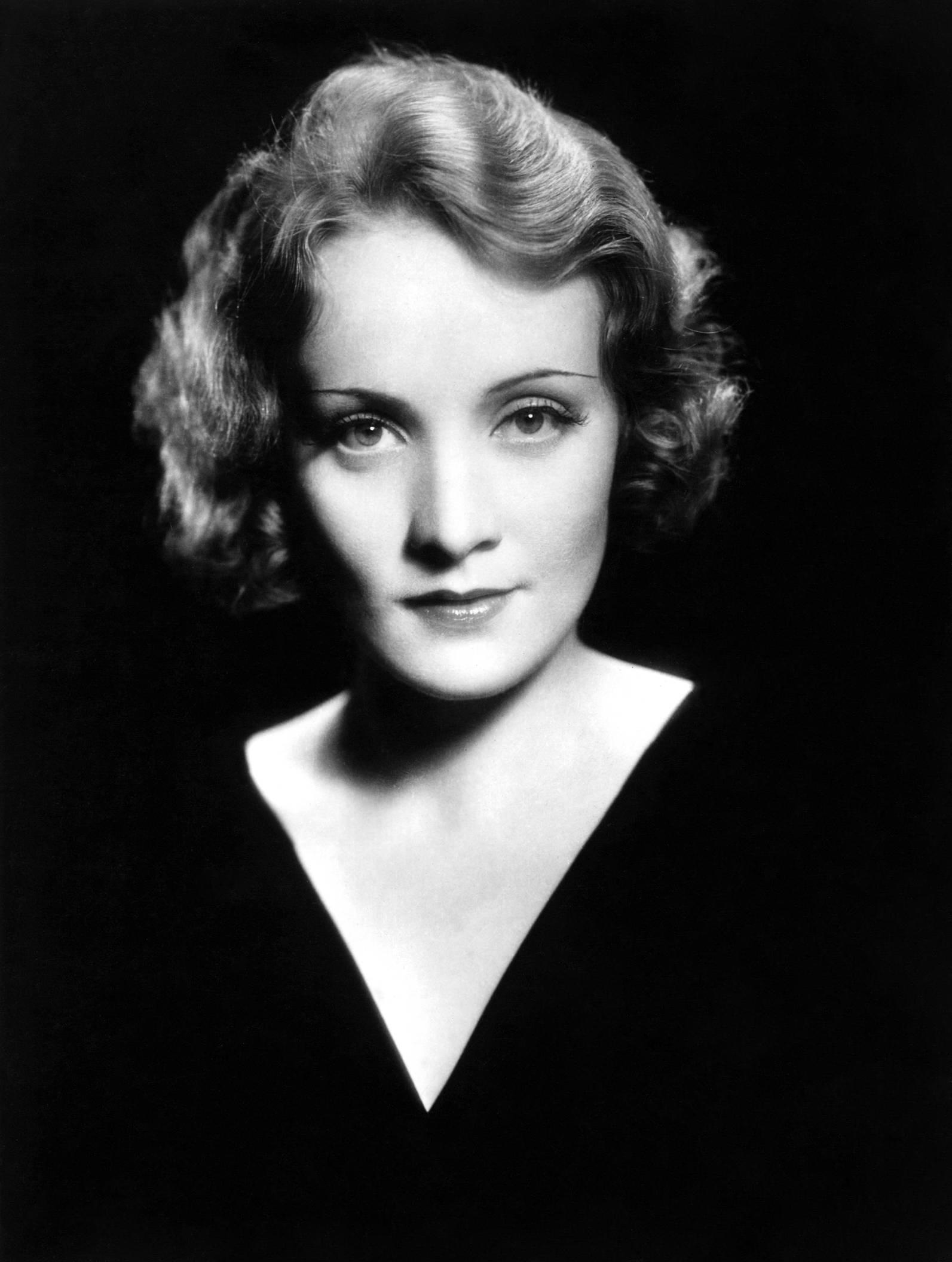Marlene Dietrich (1901-1992) was a German-American actress and singer, renowned for her sultry voice, elegance, and androgynous style. A prominent figure in classic Hollywood cinema, she starred in films like “The Blue Angel” (1930) and “Destry Rides Again” (1939). Dietrich’s unique persona and contributions to the entertainment industry made her an enduring symbol of glamour and sophistication.
Dietrich’s early life was shaped by her strict Prussian upbringing. Her father, Louis Erich Otto Dietrich, was a police lieutenant, and her mother, Wilhelmina Elisabeth Josephine, came from a wealthy family. Marlene’s early exposure to the arts came through her mother, who had aspirations of becoming a concert violinist.
In the aftermath of World War I, Dietrich decided to pursue a career in acting and enrolled in the drama school of Max Reinhardt. She made her stage debut in 1922 and soon began to attract attention for her talent and striking looks. Her breakthrough came with her role in the German film “The Blue Angel” (1930), directed by Josef von Sternberg. The film’s success catapulted Dietrich to international stardom.
Her collaboration with von Sternberg continued with a series of films, including “Morocco” (1930), “Dishonored” (1931), and “Shanghai Express” (1932). Dietrich’s performances in these films established her as a symbol of sensuality and sophistication. Her iconic image, often characterized by sleek suits and a distinctive hat, challenged traditional notions of femininity and made her a style icon.
As the Nazis rose to power in Germany, Dietrich, who was of part-Jewish descent, became increasingly critical of the regime. In 1933, Adolf Hitler offered her a lucrative contract to return to Germany and become a leading actress in the state-controlled film industry. Dietrich, however, staunchly refused and chose to distance herself from her home country.
Leaving Germany, Dietrich settled in the United States, where she continued her film career under the guidance of director Josef von Sternberg. Her American debut was in “Morocco” (1930), opposite Gary Cooper. The film earned her an Academy Award nomination for Best Actress, and she became the first German actress to receive such recognition.
In the following years, Dietrich continued to make waves in Hollywood with films like “Dishonored” (1931), “Shanghai Express” (1932), and “Blonde Venus” (1932). Her ability to convey both vulnerability and strength on screen earned her critical acclaim. Dietrich’s career during this period was marked by a string of successful films that showcased her versatility as an actress.
As the 1930s progressed, Dietrich expanded her artistic endeavors beyond acting. She embarked on a successful career as a singer, performing in nightclubs and on stage. Her deep, smoky voice, combined with her alluring stage presence, captivated audiences worldwide. Dietrich’s repertoire included songs like “Falling in Love Again” and “Lili Marlene,” which became classics of the era.
Dietrich’s commitment to antifascist activities during World War II further solidified her status as a symbol of resistance. She performed for Allied troops on the front lines and toured extensively to boost morale. Her dedication to the war effort earned her the Medal of Freedom from the United States in 1947 and the French Légion d’honneur.
Post-World War II, Dietrich continued her acting career with films like “A Foreign Affair” (1948) and “Stage Fright” (1950). However, as the film industry evolved, she found herself facing challenges in maintaining the same level of success. Undeterred, Dietrich transitioned to other mediums, including television and stage performances.
In the 1950s, Dietrich’s film career saw a decline, but she reinvented herself as a live performer. Her cabaret shows became legendary, and she continued to mesmerize audiences with her unique style and magnetic stage presence. Despite the changing landscape of the entertainment industry, Dietrich’s enduring popularity as a live performer showcased her ability to adapt and evolve.
Dietrich’s personal life was as fascinating as her professional career. She was known for her numerous affairs, both with men and women, and her unconventional approach to relationships challenged societal norms. She was married once, to Rudolf Sieber, with whom she had a daughter, Maria. Despite their marriage ending in divorce, Dietrich and Sieber remained close throughout their lives.
As the 1960s unfolded, Dietrich took on fewer film roles but continued to captivate audiences with her live performances. She also ventured into the world of recording, releasing albums that showcased her timeless voice. Dietrich’s unique blend of charisma, talent, and individuality solidified her as a cultural icon.
In the later years of her life, Dietrich retreated from public view, residing in seclusion in Paris. She rarely granted interviews, maintaining an air of mystery that only added to her allure. Despite her withdrawal from the spotlight, Dietrich remained a symbol of glamour and independence.
Marlene Dietrich passed away on May 6, 1992, at the age of 90. Her legacy lives on through her contributions to film, music, and the arts. Dietrich’s impact on the entertainment industry and her defiance against tyranny during challenging times cemented her as an enduring symbol of strength and resilience. Her influence can be seen in the countless artists who have been inspired by her groundbreaking career and unapologetic individuality.
